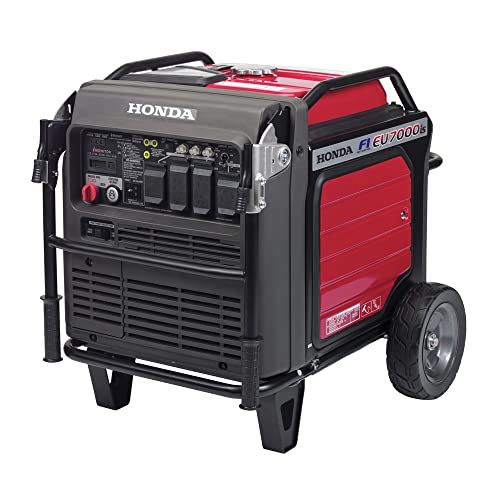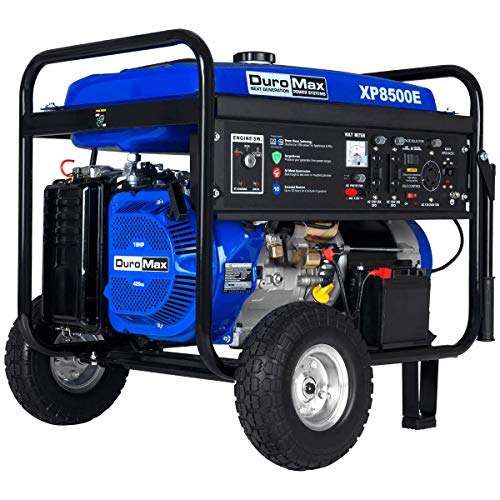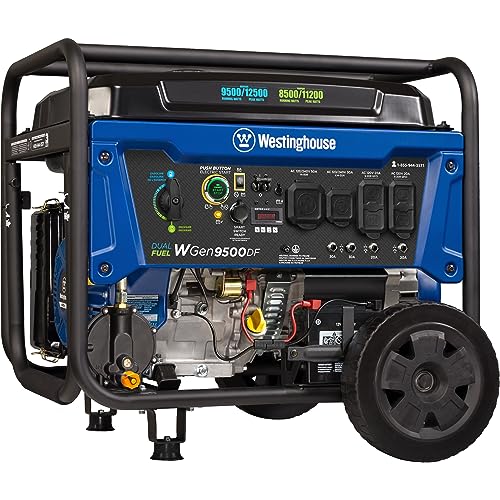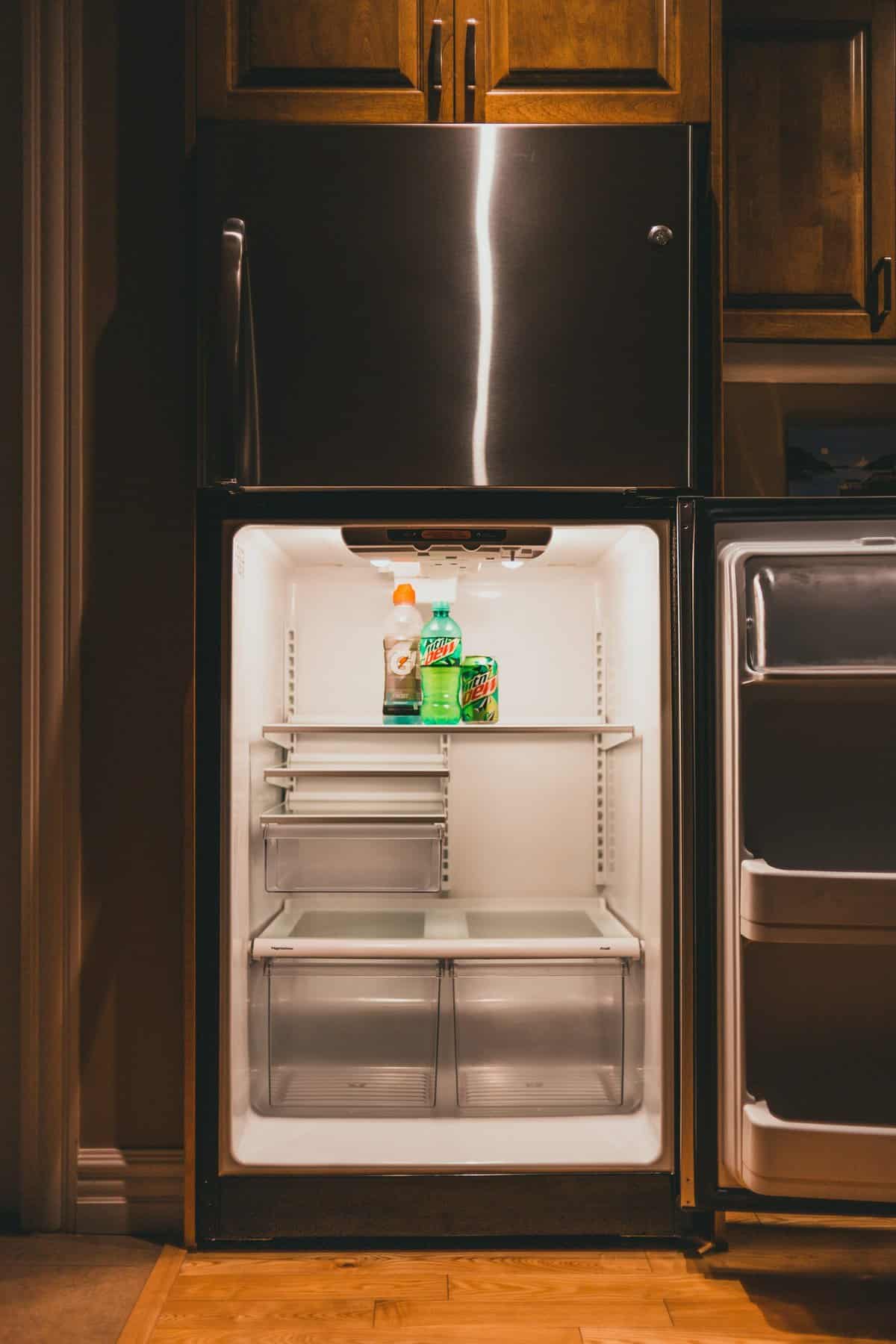
In our day-to-day activities, people rely so much on electricity. People need electricity for food storage, cooking, charging electronics, and many more. However, power interruptions are unavoidable, especially when the weather is not good. That is why generators are important.
When you are planning to buy a generator, there are many things that you need to consider – size, power output, brand, etc. Some are asking questions like – “What size generator to run refrigerator and freezer?”, “What generators are best for electronics?”, “What is the best portable generator?” and many more. These questions are all relevant, especially if you want a generator that is perfect for your needs.

Understanding Starting And Running Watts
Before getting deeper into what size generator to run refrigerator and freezer, it is important to understand the difference between starting and running watts.
Starting watts refer to the wattage needed for the device to run. It is also called a surge or peak watts because the generator can provide this wattage in a brief surge.
Running watts are the continuous wattage needed to keep the device running.
What Size Generator To Run Refrigerator and Freezer
Learning the difference between starting and running watts is very simple, and it should help you determine what size generator to run the refrigerator and freezer.
So, for the question “what size generator do I need to run a refrigerator?” here is the answer:
The peak watts or the starting watts of your freezer and refrigerator can be 3 or 4 times higher than the running wattage. Thus, if you have a refrigerator or freezer with running watts of 400W, you cannot have the 400W generator.
Generally, the formula is Starting Watts = 4 x Running Watts. Here are a few examples:
| Refrigerator/Freezer | Running Watts | Starting Watts |
| Mini Fridge | 100 watts | 400 watts |
| Standard Energy Star Fridge | 192 watts | 768 watts |
| Small Fridge | 400 watts | 1,600 watts |
| Standard Fridge | 700 watts | 2800 watts |
| Big Side-By-Side Fridge | 1,000 watts | 4,000 watts |
| Biggest Fridge | 1,500 watts | 6,000 watts |
Given the examples, refrigerators need a lot of electrical power to run and a huge amount of power to start up.
As you figure out what size generator to run the refrigerator and freezer, you can check the running watts and starting watts in the specification label. These details are usually written on the back of the fridge. The watts vary a lot. So, if you cannot find the information in the label, make the best guess on how much start wattage you initially need.
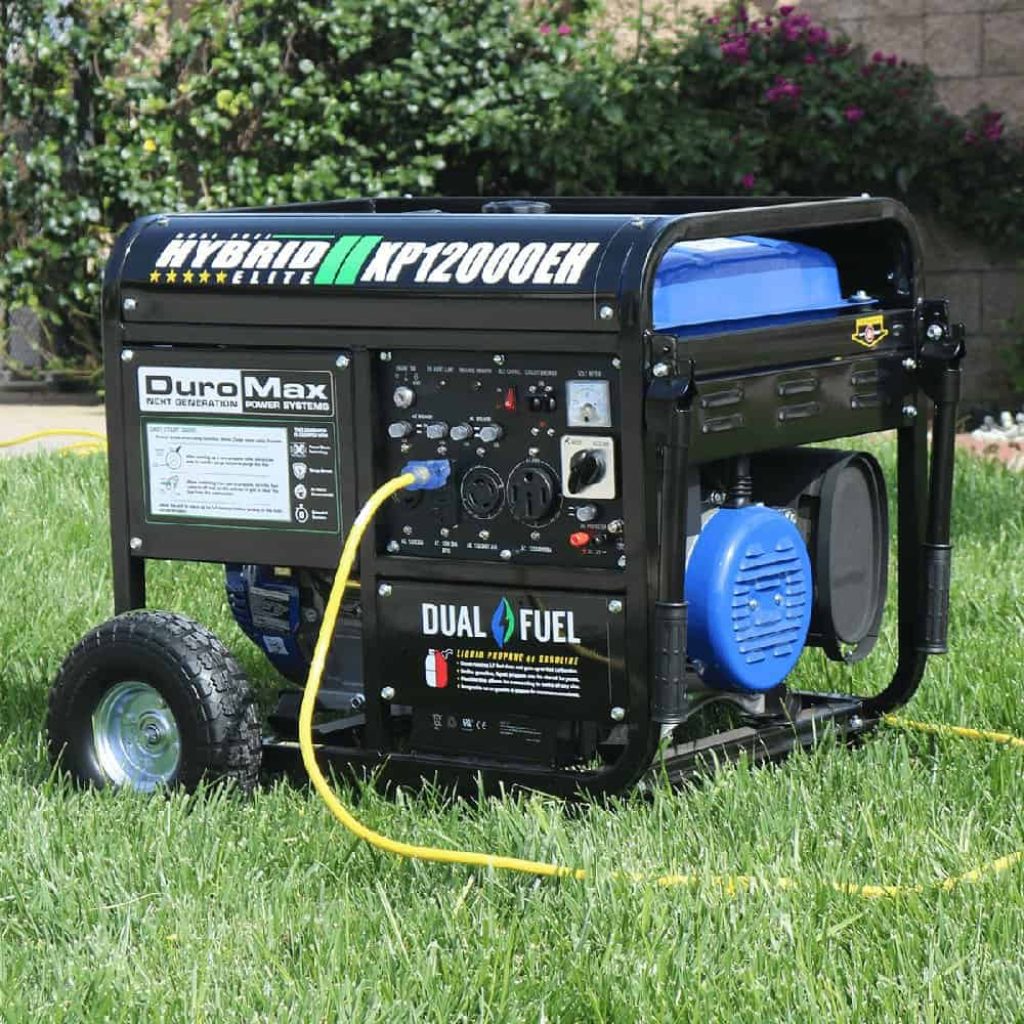
Using the computation, you can determine what size generator to run the refrigerator and freezer. Here is how big a generator you need for your refrigerator/freezer:
What Size Generator To Run Refrigerator And Freezer?
1,000W Generator – Ideal for mini-fridges and the most eco-friendly refrigerators and freezers.
3,000W Generator – Perfect for all standard refrigerators and freezers.
5,000W Generator – Suitable for all big refrigerators and freezers.
What’s Next?
Knowing the running watts and starting watts of your fridge is not the only thing you need to determine to know what size generator to run the refrigerator and freezer. You also need to identify the generator type that is more suitable for your needs.
There are different types of generators – propane, gasoline, diesel, natural gas, and battery. Choosing which one depends on a few things:
- How many and what kind of devices will you be powering
- Would it be a permanent or temporary installation
- How frequently do you experience a power outage
- Are you using the generator indoors or outdoor
Types Of Generators
Gasoline
One of the good things about using a gasoline generator is that it is easy to use and it is easy to obtain because it is a very popular energy source.
However, gasoline generators consume a lot of fuel, and the cost is expensive. Thus, it is not ideal if you use it for a long time. The noise of a gasoline generator can also be an issue.
Propane
Most portable generators and installed generators use propane as an energy source. Propane is widely preferred compared to gasoline because they are much cleaner and quieter.

In addition to being cleaner and quieter, propane is also the safest for the environment. It can be stored for long periods and can be kept in different types of cylinders. Keeping propane at home is indeed trouble-free.
Diesel
Diesel generators are ideal for rural areas where gas lines are unavailable or installed. Since the motors of diesel generators are powerful and large, they are more popular for larger loads, such as in hospitals and construction sites.
While diesel is not the most common fuel for generators, they are more efficient than gasoline. It is also much cheaper and safer to use.
Diesel generators also produce a lot of noise, making them unsuitable for residential use.
Natural Gas
Depending on if natural gas is available, natural gas generators are great for permanent installation. The main benefit of using natural gas is it is clean and quiet. However, you need to have a gas line installed in your home or building.
A natural gas generator is enough to power your refrigerator and other devices, including air-conditioning and lighting.
Battery
In determining what size generator to run the refrigerator and freezer, it is important to know if a battery generator is enough. One major benefit of using battery generators is that they can be installed indoors. Battery generators are easy to install. Depending on the type and model, they can be recharged with solar or utility power using the standard electric outlet.
While it is good that they can be installed indoors, you need to consider that the batteries need to be changed every four years. It means additional cost.
Generator Installation
After determining the type of generator that is more suitable for your need, you need to look into the installation of your generator.

Fuel-Powered Generators
For portable fuel-powered generators meant for temporary needs, you can plug your refrigerator into an extension cord from the outdoors through the door or window.
If the generator is meant for permanent installation, connecting the generator to the electrical panel is ideal. In this setup, the generator gives power to the wall outlet where the refrigerator or freezer is plugged.
Battery-Powered Generators
As mentioned above, battery-powered generators are usually installed indoors. You can plug the refrigerator or freezer directly into the battery generator in this setup. You can install the battery generator beside the fridge to eliminate the need for an extension cord and other electrical work.
It would be best if you hardwired the generator to multiple outlets to run multiple refrigerators. It can supply two or three appliances simultaneously.
Top 5 Generators to Run a Refrigerator and Freezer
Honda Power Equipment EU3000IS1AN 3000W 120V Portable Home Gas Power Generator
The Honda EU3000IS1AN 3000W 120V Portable Home Gas Power Generator is an ideal solution for running a refrigerator or freezer or combination. This generator produces 3000 Watts (25 Amp) of Honda Inverter 120V AC Power, making it reliable for powering computers and other sensitive equipment. Its electric starting feature (battery included) helps to get it going quickly, with a recoil back-up if needed. This generator runs at a super quiet 50 to 57 dBA, much quieter than most generators, and is incredibly fuel efficient, running on 3.4 Gallons of fuel for up to 19.6 hours. While it is a heavy unit that requires two people to lift, a wheel kit is recommended to make it easier to maneuver.
GENMAX Portable Inverter Generator,5500W ultra-quiet gas engine, EPA Compliant, Eco-Mode Feature, Ultra Lightweight for Backup Home Use & Camping (GM5500i)
The GENMAX Generator,Gas Compliant Lightweight GM5500i is an ideal solution for running a refrigerator or freezer or combination. This generator produces 5500 starting watts with 4500 running watts, and is powered by a gasoline engine. It comes with several safety features, such as low oil shutoff and overload protection, and is CARB compliant. It also features a quiet muffler to keep the noise level low, and can run up to 10 hours on a full tank of gas. It is relatively lightweight, making it easy to move around, and is equipped with four 120V outlets, a 12V DC outlet, and one 120V/240V outlet.
Honda 664280 EU7000ISNAN 120V/240V 7000-Watt 389cc 5.1 Gallon Inverter Generator with Co-Minder
The Honda EU7000ISNAN 7000W 120V Portable Home Gas Power Generator is an ideal choice for powering a refrigerator or freezer or combination. This generator provides 7000 Watts (58.3 Amp) of Honda Inverter 120V AC Power, making it reliable for powering computers and other sensitive equipment. It has an electric starting feature (battery included) and a recoil back-up if needed, and runs at a super quiet 50 to 57 dBA. It is also incredibly fuel efficient, running on 3.6 Gallons of fuel for up to 18 hours. The generator is quite heavy and requires two people to lift, but a wheel kit is recommended to make it easier to maneuver.
DuroMax XP8500E Gas Powered Portable Generator-8500 Watt Electric Start-Camping & RV Ready, 50 State Approved, Blue/Black
The DuroMax XP8500E 8500-Watt 420cc 16HP OHV 4-Cycle Gas Powered Portable Generator is the perfect solution for running a refrigerator or freezer or combination. This generator produces 8500 starting watts and 7000 running watts, and is powered by a 420cc OHV engine. It is equipped with a low oil shutoff and overload protection, and is CARB compliant. The generator is also relatively quiet, and can run up to 10 hours on a full tank of gas. Its portability is enhanced by its wheel kit, and it is equipped with four 120V outlets, a 12V DC outlet, and one 120V/240V outlet.
Westinghouse Outdoor Power Equipment 12500 Peak Watt Dual Fuel Home Backup Portable Generator, Remote Electric Start, Transfer Switch Ready, Gas and Propane Powered, CARB Compliant
The Westinghouse WGen9500DF Dual Fuel Portable Generator with Remote Start is the ideal choice for running a refrigerator or freezer or combination. This generator produces 9500 peak watts and 7500 running watts, and is powered by either gasoline or propane. Its electric start feature (battery included) makes it easy to get going quickly, with a recoil back-up if needed. The generator runs at a relatively low level of noise, and can run up to 16 hours on a full tank of gasoline and 10.5 hours with a full 20 lb. propane tank. It is relatively lightweight, making it easy to move around, and is equipped with four 120V outlets, two 120V/240V outlets, and one 12V DC outlet.
Generators And Other Home Appliances
Aside from determining what size generator to run the refrigerator and freezer, it would be best to consider the other home appliances you want to run continuously, even during a power outage.
Now that you understand running watts and starting watts, you can easily estimate the total wattage you need for your devices and appliances. The rule of thumb is to get a generator that can handle your total wattage needs using no more than 90 percent of its capacity.
Summary:
A refrigerator and freezer continuously running even during a power outage are very important. If you don’t want to stress yourself in the event of a power outage, make sure to get the right generator that can start and run your refrigerator and freezer. Remember that the running watts are never the issue; the starting watts are.



